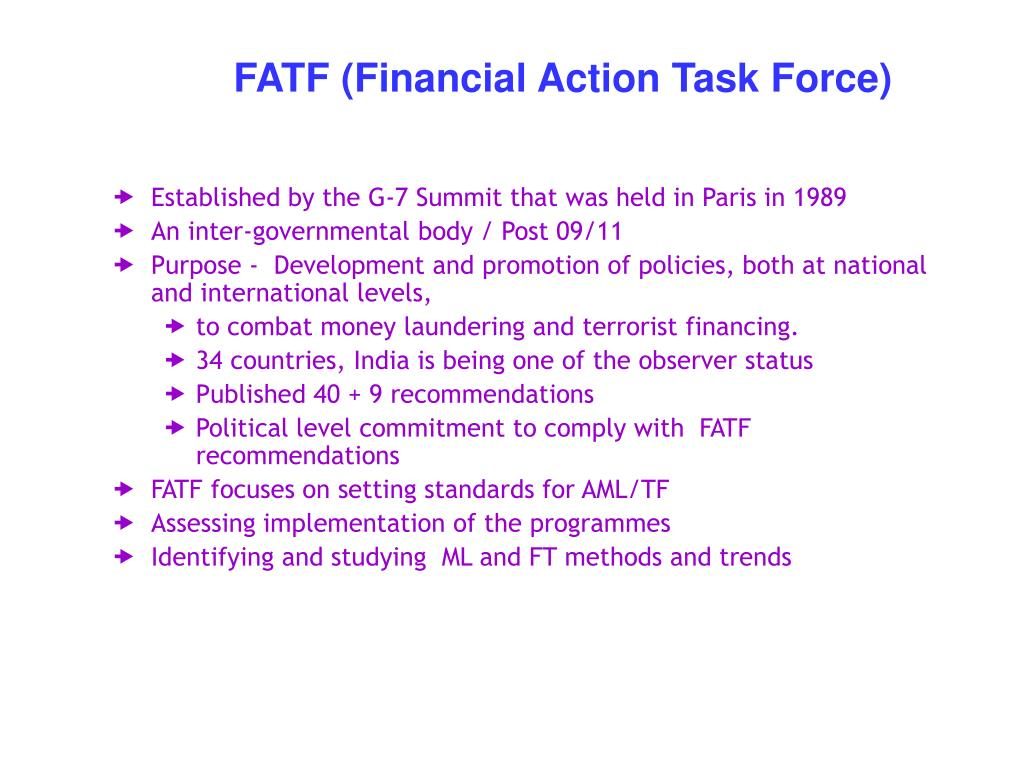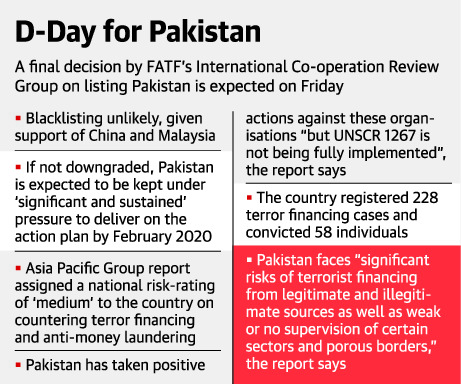Relevance: Prelims/Mains: G.S paper II: Polity: International Relations
- Pakistan has been retained on the “grey list” of the Financial Action Task Force (FATF) for another four months, with a stern warning from the global watchdog that met in Paris (February 19-21) to complete the 27-point action plan it has been given by June 2020 or face being put on the “black list”.
Key highlights:
- According to the FATF summary report, Pakistan needs to continue to work on eight specific areas, including demonstrating it is “identifying and investigating” all terror financing activity in the country, freezing the funds of all designated terrorists and that its prosecutions result in “effective, proportionate and dissuasive sanctions” against all terror entities in Pakistan.
- Pakistan was given a deadline of September 2019 to complete the tasks that included shutting down all access to funding of United Nations Security Council designated terrorist groups, including the Taliban, al-Qaeda, Lashkar-e-Taiba and the Jaish-e-Mohammad and prosecuting their leadership for any access to finance, as well as tightening laws and banking security norms that deal with them.
- In November 2019, after Pakistan was judged to have complied with only four points of the action plan, the FATF extended the deadline to February, where its statement noted it had been cleared of 14 points.
- The FATF urged Pakistan to “swiftly complete” the remainder of the list.
About:
- The “black list” refers to countries for who there has been a “call to action” or strict banking and international finance
sanctions, a list which at present includes Iran and North Korea.
Background:
- Pakistan is one of the 12 countries on the “grey list” or “other monitored jurisdictions” that are being reviewed for actions to stop terror financing and money laundering.
- Pakistan has been lobbying to get off the grey list, citing actions already taken, and reportedly has the backing of Turkey to be removed from the list entirely.
- Indian government officials said placing Pakistan on the black list might prove counter-productive, as it would not be incentivised to complete the action plan under a deadline.
- Pakistan has been on the grey list in the past as well, including between 2012-2015, after which it was taken off the watch list until 2018.
For more such notes, Articles, News & Views Join our Telegram Channel.
Click the link below to see the details about the UPSC –Civils courses offered by Triumph IAS. https://triumphias.com/pages-all-courses.php



